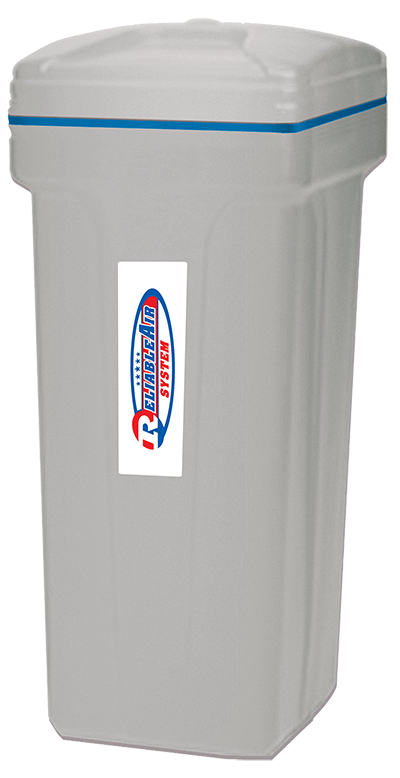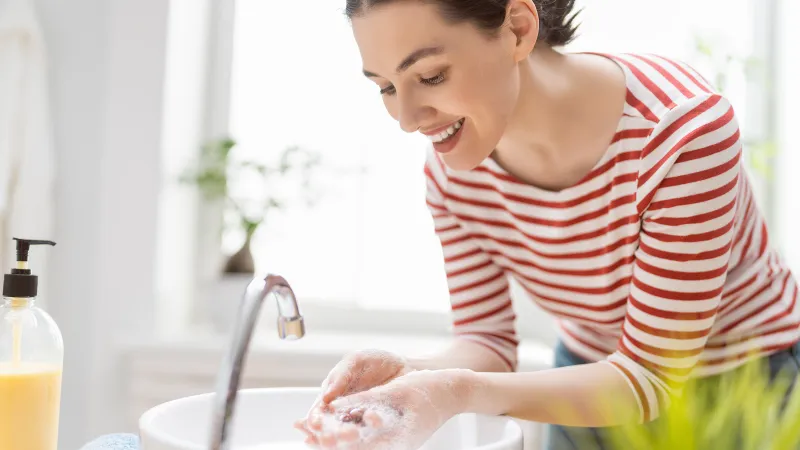Reliable
Water Softener Systems
See and feel the benefits of softer water
A Water Softener from Reliable will help remove the minerals that increase soap scum on your hair and skin, in addition to sinks, bath tubs and laundry.
Soft water could also benefit water-consuming appliances and plumbing fixtures by reducing scale that can affect their efficiency and life expectancy.
Benefits of a Water Softener include:
- Reduced soap scum on sinks, bathtubs, and shower doors resulting in less cleaning
- Less scale build-up on plumbing fixtures and pipes, water heater, dishwasher, humidifier, coffeemaker and other appliances
- Extended life of fabric and clothes
- Better feeling water for bathing and showering
Water Softener Systems Installed for as low as $41.99/month - with NO charge maintenance, repair and replacement included
Book a free, in-home water analysis with a Reliable water purification expert today.

Choose Reliable
For All Your Water Purification Needs
When you choose Reliable's Comfort as a Service you get our full service of guarantees, including:
- No charge repair and replacement when needed
- Easy and convenient no charge salt replacement program
- Scheduled maintenance program - all handled by Reliable at no charge to you
- Professional installation by a certified Reliable plumber
- $0 upfront costs

Have Questions?
Fill out the form below and a Reliable Home Comfort Advisor will be in touch shortly.
FAQ
Answers to commonly asked questions
Do you really need a water softener?
Whether or not you need a water softener depends a lot on where you live. Certain regions have particularly high levels of hard water. Water hardness is measured by grains (of mineral) per gallon (GPG), or by parts per million of mineral (PPM). One GPG equals 17.1 PPM. Water with up to 3.5 GPG can still be considered soft for many homeowners. Water with more than 10.5 GPG is considered very hard.
Not sure of the GPG of your water? Request a complimentary, no-obligation consultation with a Home Comfort Advisor and you'll receive a free water analysis. Request an appointment today.
What are the effects of hard water?
If you notice any of the following, you may have a hard water problem:
- Soap scum on your hands and hair, sinks, bathtubs and shower doors
- Scale build-up on plumbing fixtures and pipes, water heater, dishwasher, humidifier, coffeemaker and other water-consuming appliances
- Spots on silverware, glassware and mirrors
- Soaps, shampoos and detergents that don't lather the way they should
- Bright color fabrics get dulled quickly
There are also other effects of hard water that you may not notice immediately, such as shortened lifespans of water-consuming appliances like dishwashers.
Why should you get a water softener?
There are at least 4 reasons to get a water softener:
- You live in what is considered a hard water area
- You could reduce the amount of soap needed to create a lather
- You could maintain plumbing fixture appearance and function
- You could enjoy the feel of softened water when washing and taking a shower
What is hard water?
Hard water occurs naturally when water flowing in rivers, streams and even through underground channels comes in contact with the rock in the Earth's crust. Hard water is not harmful to your health but can create mineral deposits in your plumbing, water heater and other water-using appliances, possibly shortening their lifespans.
How does a water softener work?
The water softener passes the hard water through resin beads which have soft sodium or potassium ions attached. When the water comes in contact with these beads, an ion exchange takes place with mineral ions in hard water - essentially the two sets of ions trade places.
Are water softeners safe?
Water softeners are not water purifiers, so they do not affect the quality of your water. Only certain minerals that cause water to be hard are removed during the water softening process.
Do water softeners affect the taste of the water?
Although salt is used to soften water, you won't necessarily have salty-tasting water. Many people with water softeners drink and cook with softened water without noticing any difference in taste to distilled water. However, if you prefer the taste and texture of distilled water, you could consider adding a drinking water treatment unit to your water softener. A Home Comfort Advisor can help you choose the right one for your needs.
How long will a water softener last?
If you choose to enroll in our comfort club, you never have to worry about your water softener's lifespan or potential breakdowns. That's because we will service and replace the unit (if necessary) for no extra charge.

